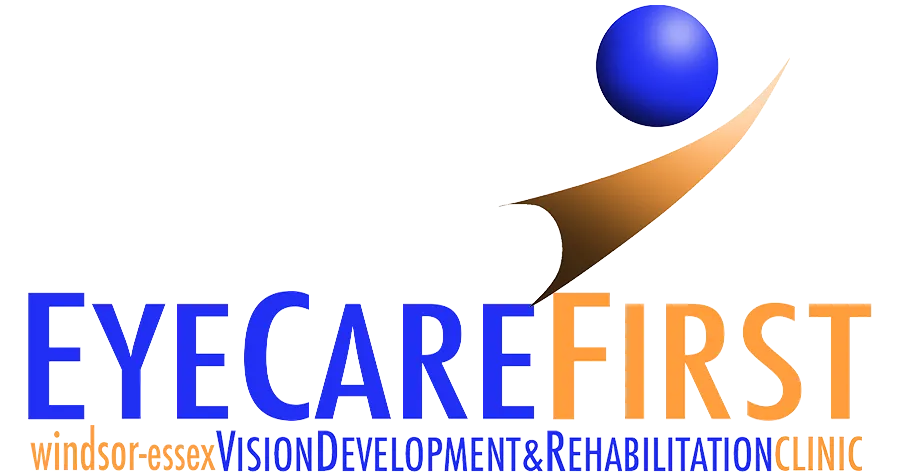Psst! Do you want to know the secret to success?

- posted: Sep. 13, 2022
“Whether you think you can, or you think you can’t—you’re right.”
-Henry Ford
Philip Henslowe: Mr. Fennyman, allow me to explain about the theatre business. The natural condition is one of insurmountable obstacles on the road to imminent disaster.
Hugh Fennyman: So what do we do?
Philip Henslowe: Nothing. Strangely enough, it all turns out well.
Hugh Fennyman: How?
Philip Henslowe: I don't know. It's a mystery.
(From Shakespeare in Love)
What you will read about:
- Creating outcomes is easier than you thought: First step is crucial
- Whose responsibility is it: I’m looking at you!
Have you every dreaded an upcoming event—meeting, date, appointment—and after it ends, you weren’t disappointed that it was terrible? If you’ve ever thought, “I just knew that I shouldn’t hope for something good to happen because it always ends poorly,” and you were right, then keep reading. This might be a big first step to a new beginning.
I just knew something bad would happen!
There was a course that I was flying out to attend. This was the first flight that I was taking since COVID and with the Canada/US land border still closed for travel, the only way across was to fly. So, instead of driving across the Windsor/Detroit border and then catching a direct 4-hour flight from Detroit to Phoenix, where the course was being held, I had to fly out of Windsor, catch a connecting flight to Toronto to Denver, then Denver to Phoenix—a 15-hour day of travel. With the nuances and rules of travelling in a COVID world, I had to meet the vaccinations protocols for both countries and organize COVID testing for re-entry into the country. With all of this, I am sure you could appreciate my anxiety with travelling. I remember repeatedly telling my wife this was going to be fine and then following that with, but I am sure it won’t be easy. Knowing my luck, they’ll probably lose my luggage. I think that became my go to sentence whenever I thought about the upcoming course. Well, when I landed in Phoenix, tired, and also excited just to arrive at the Airbnb I was staying at, my phone was vibrating like crazy from the numerous text messages that were sent during mid-flight and now being received when I landed. Apparently, my luggage was still in Denver. My first thought was a little fear and anger—I knew this would happen!
How many of you have experienced something like this? You knew something bad would happen—partner is going to breakup with you, package is going to be lost, something bad will happen because you have an important meeting coming up—and it does!
- I wish my life could be filled with ease: Start by asking, who is doing the filling?
One the other side of the coin, how many of you have just known that something good is going to happen and it turns out being one of those Hollywood moments that you couldn’t write a better script?
On my next course, this time in San Diego, I had to catch a connecting flight from San Diego to Charlotte, and from Charlotte to Detroit. That morning, I received a notice that my first flight from San Diego to Charlotte was delayed by 40 minutes, so I only had 17 minutes layover in Charlotte. There were many flights being cancelled because of snowstorms across the country. Initially I was kind of happy with that, long layovers don’t seem too appealing when you want to get somewhere and now, I had an extra 40 minutes to get to the airport instead of being rushed. Win-win, right? Well, when I got to the airport, the agent told me that they could let me board because they couldn’t let passengers through when they had less than 30 minutes for a connecting flight. I was redirected to another line to book a different flight and it looked like the next available flight was going to be the next morning. The line to rebook was already growing as many people were in similar circumstances like mine. As I waited in line, another agent saw my boarding pass and asked me if I was in the wrong line. I explained I was told to come here because of having only 17 minutes to catch the connecting flight. She then told me that I could waive that rule as long as I was okay to find my own arrangements if I missed the connecting flight; in other words, American Airlines wouldn’t be responsible if I was stuck in Charlotte at 10:30pm. She brought me to the first agent again, the agent gave me that look of, are you serious? She then walked me through what it would look like, “you have 17 minutes. This 17 minutes starts when the plane touches down, traffics to the gate, passengers unload, then you have to run from the end of Terminal C all the way to the end of Terminal B. They are not close. You understand this is pretty much impossible?”
I looked at both of them, took a deep breath and smiled, “I appreciate what you are saying, and here’s what’s going to happen. The plane is going to arrive 20 minutes early. This gives me almost 40 minutes. I’m going to walk very quickly from Terminal C to Terminal B.” She shook her head, took my luggage and put it on the belt. “Good luck…”
I got on the plane, and I can promise you, I wasn’t at all thinking of that conversation. The plane had its moments of turbulence as, again, there was some bad weather, but the pilot must be one of the best. He was so skilled, that not only did he navigate through and around the storms, and we also landed, you guessed it, 20 minutes early. I walked quickly from Terminal C to Terminal B, actually had to use the restroom on the way, and when I got to the gate for Detroit, there was only a few people left in the line and during my wait, there were two other people that arrived after I did.
How many of you have been through something like that? You just knew everything was going to work out just fine!
- You can change the outcome! Start by deciding the narrative.
What if you could change the outcome so instead of your luggage being lost, your flight is filled with ease and comfort?
I recently attended the annual conference of Vision Therapy Canada. This year it was in Ottawa, and it was the first in-person annual conference since 2019, because of COVID. Admittedly, as a member of the board, I had a lot of excitement building up towards this event—it was going to be my own first ever in-person one, it was also going to be my last in-person one as a member of the board (at least for now), I was going to see so many amazing friends in person that I haven’t been with for a while, and I was going to do all of this with my team as the vision therapists from my office were all going together. This was going to be amazing!
There were also some concerns. Recently, there were a couple of large optometry conferences that ended up being super-spreaders for COVID. Our event organizer also revealed that all the events they knew of, also became super-spreaders as this may be the current new norm. Obviously, no one on the board wanted this. To add to this, following the other optometric events, there was an online survey that was sent around, and I think one of the questions asked whether they tested positive for COVID following those specific events. I’m pretty confident those surveys were unofficial, unsanctioned and separate from the organization. I don’t know the purpose, and quite frankly, don’t care.
I suppose that if I was really curious, I could create a survey and post it to the Facebook page and wait for the responses to come in. I’m not that curious and for anyone interested, I feel fine. In fact, everyone that I talked to after the weekend that attended sounded great. (I didn’t ask).
Everything is either successful or unsuccessful, you have a huge part in this
This thought of sending or not sending a survey reminded me of Schrödinger’s cat, or maybe more specifically, the results of the survey and even more specifically, how many people got COVID that attended the conference. For those that are not familiar with Schrödinger’s cat, it was formed as a thought experiment for quantum physics. Basically, the idea was that if you put a cat in a box and close that lid so that you could not observe that cat. Now, if some event happened that could potentially hurt that cat, you would have no idea whether that cat was still alive or if it was dead, until you opened that box. More specifically, the concept was that the cat would exist both as alive and dead, until someone opened that box and observed.
I like to think of this thought experiment in a little different manner. Until someone opened that box, that cat is either alive or dead. It all depends on the individual’s perspective and choice of thought. If you think that Schrödinger’s cat was dead, then technically the cat is dead and if you think that Schrödinger’s cat was alive, then technically the cat is alive—all of this is true, until someone opens the box.
Let’s add another concept to this. The Pygmalion effect, or the Rosenthal effect, is the idea that if a teacher thought that their students were going to be successful, then the students achieved better results and conversely, if the teacher expected their students to be unsuccessful, then the students would achieve poorer results. In other words, the expectations of the teacher or leader led to a self-fulfilling prophecy, both good and not-so-good results.
- You are the leader in your life: you control the expectations and therefore the results
Why is this important? Well, how we choose to view something will have an important influence. When we go back to the original conversation about whether or not the Vision Therapy Canada annual conference will be a COVID super spreading event, putting the initial thought into our desired outcome is pretty significant. Again, the leaders/teachers’ expectations of their students will impact their results. Look, I am not saying ignore precautions and any health advice. What I am saying is, perhaps your biggest choice is how you decide to look at something. Set your intentions and decide, do you want to view the potential results with negativity, or do you want to start out with a positive outcome? Again, you still have to take action. Believing your students will be successful does not negate the fact that they should still work hard.
What you believe will influence your effort
A similar example came up recently on an email group that I am a part of. A few days ago, a debate started about whether Team Building activities really work or are they just a momentary jolt of fun. I shared my own belief that “of course, team building events work!” The debate bounced back and forth with some others jumping in with “Hansel’s right…” As I read each opinion, I realized that although I was right, I was also not completely right. I recognized that if you believed the team building would have no long-term impact, then it probably wouldn’t have any impact, so don’t do it. However, if you did believe team building activities could help build a desired team culture, then it probably would be successful in doing so. Your expectations will create the outcome. Yes, it helps to have a more organized, purposeful way of pre-framing and framing the event to help guide towards your outcome and if you don’t recognize that any of that will help, then even the best leaders would struggle to achieve that success.
One last thing that I want to share with you as you are reading this. Before we left for the Vision Therapy Canada Conference, I challenged myself and my therapists to set an intention or goal for the weekend. What did you want to get out of the event? For myself, especially as it was the last event that I would attend as a member of the Board, I wanted to have deeper connections. That was my purpose. On the way home from the Vision Therapy Canada Conference, we were all in the van and I led another team building exercise, this time for gratitude. As we all took turns sharing what we were grateful for during the weekend, one share really stood out to me, “grateful for everyone recognizing when I needed time to be by myself and when I needed time to be with others.” That was a nice moment for me as I think it plays a part in maintaining deeper connections—the ability to know when to purposefully engage and detach. It also helped me appreciate that one of my long-term goals is to have a sense of vulnerability among the team. Being able to share something like that—when we need help—seems vulnerable. I believe that I am part of a successful team. My patients, my team and I are successful because of each other.
So, how do you gain success?
The first step is to discover the problem or issue. In our vision therapy clinic, we have many parents and patients that come to us with struggles in reading, school performance, concussion symptoms that affect their daily lives. Just believing that you can grow and move towards your next level is a huge empowering feeling. However, having just that belief may not be enough. You need a plan, and you need to take action.
The next step is to find out what you need to resolve the issue. In vision therapy, is there a visual issue that is playing a role in the problem? To find out, call our office and book that exam and assessment.
Then, what do you need to do to take action? Again, in vision therapy, if there is a visual issue, then what is the plan to improve the visual skills needed so that you can perform at your peak level in school, relationship, career, life?
Believing you will be successful increases your ability to achieve that success.
The path that you already know will probably give you similar results that you already experience, but if you really want a different outcome, then you’re going to have to do something different. Try something different and get that change. Maybe flip that belief and recall your past successes are repeatable.
Call our office or click here and book your visual skills assessment. Believe that you can be successful and put into action your first step towards being successful.
How will you choose your outcome the next time the opportunity arises?
If you found this interesting, sign up here for future updates and information that will be helpful!
If you have any questions, feel free to email us at [email protected] or call us at (519) 948-9797 or click here to book your appointment and take that first step on the path of success.
Hansel M Huang, OD, FCOVD
Neuro-Behavioural Optometrist
Board Certified Developmental Optometrist
Master Practitioner of Neuro Linguistic Programming
Master Practitioner of Mental and Emotional Release
Master Practitioner of Hypnotherapy
Location
Find us on the map
Main Office
2601 Lauzon Pkwy, Unit 510
Windsor, ON N8T 3M4, Canada
Hours of Operation
Our Regular Schedule
9:00 am - 5:30 pm
9:00 am - 5:30 pm
9:00 am - 5:30 pm
9:00 am - 5:30 pm
9:00 am - 2:00 pm
Closed
Closed

